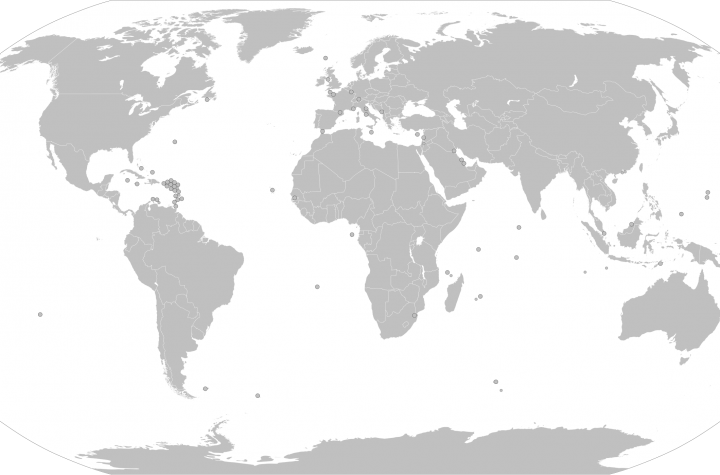
This article is on James Petras’s blog. There are some many contradictions in this one article I seriously doubt if the professor has any clue as to what socialism/fascism actually is.
Let me highlight some paragraphs in the article
The prolonged and unending downward spiral of the Greek economy and living standards, the disastrous and destructive policies pursued by the formerly dominant two parties (PASOK and New Democracy) has conclusively demonstrated that Greek “capitalism” and EEC integration has been an unmitigated disaster; tried tested and failed to meet the minimum standards of human existence.
Immediately Petras starts by saying that New Democracy and PASOK have been following capitalist ideals which is plainly not the case.
For a start PASOK is a self-declared socialist party, ND is a socialist party working under the banner of capitalism.
So straight away he attacks socialist parties and blames capitalism. This is the first of many contradictions.
The profound crises demonstrates the need for basic changes in the organization of the economy, the urgency for new political leadership and the desire for a new political system responsive to the vast majority.
I think everyone agrees
The old ruling oligarchies are totally discredited. The existing links to the EEC only bleed the economy: providing loans which deepen debt and which pass through the economy to overseas bankers. EEC ‘integration’ is in fact a great suction pump which depresses the economy and living standards in order to extract wealth for overseas bondholders.
EEC integration was never a problem until the Euro so to blame integration is completely wrong.
No capitalist or politician of the old order provides any redeeming argument. In the past they plundered the economy; in the present they extract and transfer wealth abroad; and for the future they can only promise more of the same.
Again with the attacks on capitalism yet James Petras is yet to name any capitalist party or politician. The lack of detail is disturbing given his constant attacks.
The problem facing a transition is the flawed structural and behavioral features of contemporary Greek society, polity and economy. Greece is deeply embedded with the legacy of a culture of pervasive state-party corruption and kleptocracy and bloated expenditures for the military and cliental bureaucracies. Most important Greece is dominated by rent seeking economic elites which pretend to be capitalists, but profit from state and overseas handouts from the Eurozone bankers and states
Despite Petras constantly attacking capitalism, he does identify the problems in Greece quite correctly and he also apportions blame to the socialist philosophies that have been practiced in Greece for the last 40 years or more.
Argentina immediately drastically devaluated its currency – eliminating the dollar peg – from one to one, to three to one and vastly increased the competitiveness of Argentine export products.
A very one-sided argument. Sure what Petras says his true what he fails to mention is that at the same time of the devaluation people’s savings were wiped out. This would not happen in Greece as Greeks would still have Euros in their pocket. To say it is only negative that Greece has the Euro is misleading.
Greece, is bound to the euro and will have to convert to the drachma in order to take control over its finances, currency rate and monetary and investment policy tools.
The German public does not have control over its currency, does that mean the German people are unable to control their finances or investment policy? Of course they can, his sentence is utter nonsense, the Euro is not something that stops the Greek government from balancing its books.
Greece, during its 30 year membership in the European Union actually saw its meager and backward manufacturing and agricultural base shrink, in the face of cheap and better imports from developed capitalist countries like Germany, France, Holland and elsewhere.
The attacks on capitalism continue! Manufacturing in Greece may be backward, but to not address the causes is childish. Perhaps the socialist ideals of the ruling parties has something to do with the “backwards” manufacturing sector?
With regards to the use of the word “developed” to describe Germany and “backward” to describe Greece is not only insulting it is wrong. Greece employs the same level of technology in its farming as any of the countries Petras highlights.
However, the “transfers” were not channeled into productive activity either by the two ruling parties or by the ‘capitalists’ and ‘farmers’. The ruling parties used the transfers to build extensive electoral patronage machines; they squandered funds for overpriced state contracts to provide builders engaged in non-productive building projects (including the multi-billion dollar swindle around the Olympic Games). Tens of thousands of unemployed graduates and party loyalists bloated the national, regional and local bureaucracy, increasing consumption, blocking any meaningful productive activity.
Despite Petras making baseless attack on capitalism, the specific points he does make, clearly highlight the problem in Greece is actually socialism and big government.
Capitalists designed “productive projects and then transferred EU- loans and handouts to local and overseas real estate investments and luxury purchases. The Greek elite transferred loans to London, Swiss and Cypriot bank accounts – while the government signed off as ultimate guarantor.
And this paragraph really makes me question Petras’s grasp of the word socialism. For some bizarre reason he thinks capitalists are involved in government. The very definition of the word capitalist is small government and personal economic freedom, to say capitalists are working with the EU is an oxymoron. Fascism is the word he is looking for. When private institutions use the power of the state to further their own interests.
I think Petras is confused. He believes capitalism is the same as fascism which is exactly wrong.
In the agriculture sector, many property holders were doctors, dentists, lawyers and high officials who used the ownership of a few dozen olive or orange trees to receive low interest loans, import tax free luxury 4 x 4 vehicle imports and to build second or third vacation houses .Many farmers who received loans and grants, purchased land for homes for their married children or for extra room to rent to tourists or to send their sons and daughters to overseas universities.
Again Petras highlights the problems of a socialist system where the government chooses the winners and losers.
Contrary to superficial appearances, Greece was not ruled by capitalists, small business people and farmers’ as some political scientists claim. Greece was ruled by an extensive class of kleptocrats, tax evaders and rentiers who pillaged, borrowed, consumed and invested overseas.
The contradictions are getting thicker and thicker. Petras acknowledges that capitalism has not been practiced in Greece and yet his article until now has attacked capitalism as being the problem.
And then Petras goes on to outline his solution and this is where things really get bizarre.
Greece should suspend debt payments, impose tight capital controls and freeze bank deposits to avoid capital flight, in the face of the Troika cut-off of funding. The LG should convoke a series of emergency commissions to (1) secure alternative sources of emergency financing from several reserve funds with Euro holdings. They must seek loans from Russia, Iran, Venezuela, China and other states not beholden to the Troika (2) make an inventory of available and potential productive enterprises – bankrupt or troubled firms, indebted enterprises – and convert them into state sponsored worker-employee operated co-operatives (3) investigate public debt to determine what can be classified as ‘legitimate’(loans channeled into productive employment) or illegitimate (loans that enriched speculators, corrupt contractors, political leaders)
The whole article up until now has been highlighting the corruption of government and yet Petras’s solution to the problem he himself purports to be down to socialism, is to give the state massive power. The article is becoming more and more absurd.
Public sector enterprises were overloaded with the unemployed ‘party members’, many virtually ‘no shows’; and many public sector unions engaged in nepotism and multiple-employment at the expense of efficient services, profitability and long-term development strategies. Public sector enterprises require a kind of re-nationalization’, to generate revenues and income to finance new jobs in new enterprises. Management of public enterprises should be transferred from the hands of stagnant ‘life time job-holders’ to dynamic workers – entrepreneurial – engineering management teams looking to broaden the scope and quality of activity within the new economy.
Pension funds and other savings must be mobilized alongside the billions retained by the state’s debt default to pay current expenses (pensions, salaries, basic imports etc.), to stimulate the revival of production among enterprises which show a willingness to rebuild the economy and which show a willingness to collaborate in activating production and employment. Public profits should finance worker takeovers of factories and services abandoned by their previous owners, of which there are thousands.
The public sector must take the lead in investing, servicing and producing to create “confidence” among the small and medium size producers. The public sector must take the lead in negotiating with potential lenders and economic partners outside the Eurozone: new markets and financial arrangements will be necessary if the Eurozone cuts off all funding as a consequence of debt default or a moratorium.
These 3 paragraphs go from blaming the politicians for the problems to appointing politicians to solve the problem.
As is usual of socialists they identify the problems more or less perfectly and yet the answers they have involve more of the same.
Socialists say that corrupt politicians have destroyed the country and yet their answer is to put more control in the hands of politicians.
The problem socialists have is ignorance.
The word capitalist is such an abhorrent term to them they simply cannot enter into a conversation debating the pro and cons, it almost as if they treat socialism as a religion, something that cannot be questioned.
Socialists attack what they call capitalism but what they are actually attacking is fascism.
Until socialists can open their minds to at least possibility that capitalism is the answer they will continue to suffer from cognitive dissonance, holding two contradictory thoughts and believing both are correct.
The contradiction of blinkered socialists is becoming more and more obvious the deeper the world descends into depression. Socialists blame corrupt government from the problems and yet their answer is more government.






More Stories
WEF & BIS Present Blueprint For The “FUTURE MONETARY SYSTEM” Of A GLOBAL CBDC And Cashless Society!!
ΠΑΣΟΚ-ΚΙΝΑΛ: Αυτός που δυσφημεί τη χώρα είναι ο Κ. Μητσοτάκης
Πότε αρχίζουν τα γηρατειά; Εξαρτάται από την ηλικία των ερωτώμενων